Search
Did you mean: Galatia?
Search Results
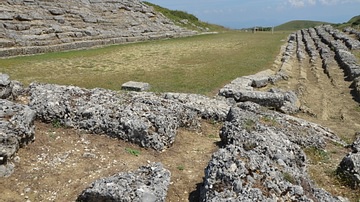
Image
Stadium of Amantia, Albania
The Stadium of Amantia was built in the 3rd century BCE. Its stone rows, set in the form of an extended horseshoe, followed a track 12.5m wide and about 60m long. It had 17 rows on one side and 8 on the other and could accommodate about 4000...
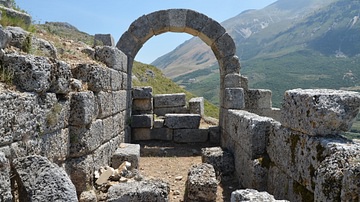
Image
City Gate of Amantia, Albania
One of the city gates of Amantia with an archway belonging to the second phase of construction of the city. The city was protected by a 2,100 m long, walled enclosure equipped with three monumental gates.
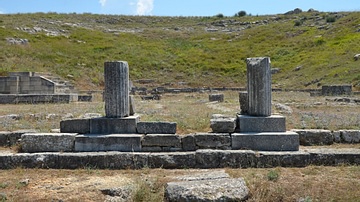
Image
Theatre of Byllis, Albania
The Theatre was built against a natural slope and dates from the middle of the 3rd century BCE. With its 40 steps of seats, it had a capacity of 7,500 spectators.

Definition
Mehmed II
Mehmed II (1432-1481 CE), also known as Mehmed the Conqueror, was the seventh and among the greatest sultans of the Ottoman Empire. His conquests consolidated Ottoman rule in Anatolia and the Balkans, and he most famously triumphed in conquering...
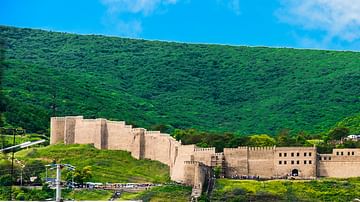
Definition
Derbent
Derbent (sometimes "Derbend" or "Darbend") is an ancient city located along the Caspian Sea in what is present-day Russia. Although the area in and around Derbent has been continuously inhabited since at least the 8th century BCE, Shah Yazdegerd...

Definition
Parthia (Empire)
The Parthians ruled from 247 BCE to 224 CE creating a vast empire that stretched from the Mediterranean in the west to India and China in the east. East of the Caspian Sea there emerged from the steppe of Central Asia a nomadic Scythian tribe...
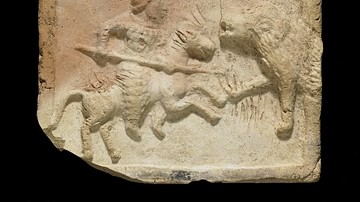
Definition
Parthian Warfare
Parthian warfare was characterized by the extensive use of cavalry and archers. Coming at enemy troops from all directions Parthian riders created confusion and wreaked havoc. They even developed the famous “Parthian shot.” Able to shoot...

Video
Greecetaxi | Virtual Tours - Macedonia | Pella & Aegae
Pella & Aegae - Macedonian Capitals Macedonia is a geographical and historical region of the Balkan peninsula in southeastern Europe. Its boundaries have changed considerably over time, but nowadays the region is considered to include...

Article
Mark Antony's Parthian Campaign
In 36 BCE, Mark Antony (83-30 BCE) invaded Parthia, hoping to render himself one of the great conquerors of the Greco-Roman world, but he was stymied by Parthian forces and obliged to undertake an arduous, costly retreat. What to make of...

Image
The Italian Empire in 1942 - The Spatial and Political Dimensions of Italian Imperialism
This map illustrates the extent of the Italian Colonial Empire, established during the era of New Imperialism as Italy sought to assert itself alongside the great powers of Europe. Driven by both economic ambitions and national pride, the...